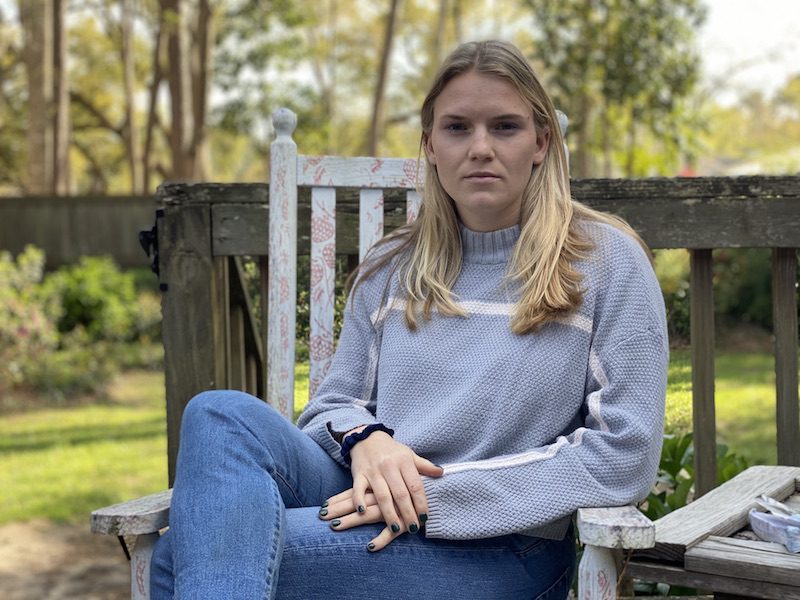 (Photo courtesy of Laura Bratton)
(Photo courtesy of Laura Bratton)
I am a 24-year-old white woman living in southeastern North Carolina. I identify as a progressive Democrat, I went to Black Lives Matter protests this summer, I have many cross-racial work relationships and friendships, I listen to podcasts like “Code Switch,” and I read books by Black scholars like bell hooks and Dr. Beverly Daniel Tatum.
I’m also the great-great-granddaughter of a Confederate general, I grew up in a gated white neighborhood with a country club, and I went to mostly-white private schools.
So, yes, I know I’ve inherited a legacy of racism, and I can’t really pretend otherwise.
Starting at a young age, I noticed a difference in the values my white family taught me and the way they treated people of color. They were overly nice to Black and Brown people in lower socioeconomic standing, but threatened by people of color in leadership roles, as if to say: stay in your place.
And all too often, I sat in silence while family members made racist comments. I remember, as a young child, a cousin saying the N word as a “joke.” Or another close family member being frustrated about the long line at the airport and the employee she’d spoken to. “It was some minority,” she’d said. My mom being a little too nice, too eager to befriend Black women.
As I developed my racial identity through college and after graduation, I started getting used to the discomfort I feel when racism rears its ugly head. I’ve pushed myself to accept uncomfortable truths about my whiteness and the harms it’s historically caused, I am receptive to criticism when I make mistakes (which I often do), and I call out racism when I see it occurring — even in my family.
But when I’m with my family, I often feel like a brat when I call out their racist comments. Like when the topic of the Oprah Winfrey interview with Meghan Markle and Prince Harry came up recently.
“It was so thick a bird could have flown out of it.”
A relative was talking about Oprah’s hair.
I winced. I said, “That’s not cool.”
He was confused – he would just as easily say this about a white woman’s hair, so why was this comment not okay? I mentioned that Black people have a different texture of hair than white people, so styling hair is different. He apologized, saying “I’m sorry if I’ve offended anyone,” but I could tell he was still pretty confused.
His comment sat with me — that deep discomfort I feel in my gut when I feel like I haven’t done enough. I thought of Elise, a friend from my study abroad program in college who had done a whole semester project on natural hair. She’d talked about the stinging chemical straighteners her mom had used on her hair starting at 4, and the overwhelming social pressure to conform to white hair. She discussed the lack of Black hair products on the aisles of grocery stores and pharmacies.
At the same time, I felt guilty for saying something.
But then – why is my immediate response to care about what my white family thinks, rather than the Black and brown people their comments harm?
I’ve talked to my therapist about this a lot. She says that abruptly calling people out and expecting them to be receptive is unreasonable. After all, racism has been around a lot longer than me, so of course my single comments aren’t going to change the system. Duh.
In fact, learning to sit with discomfort has been important for me because it challenges my own white fragility. When I’m upset that another white person hasn’t kindly thanked me for pointing out their racist comments, I am having a white fragility response. I have to learn to sit with discomfort if I ever want to be called an ally.
If I’ve even gotten my relatives to think twice about something they wouldn’t have otherwise, it’s worth it. And what’s worth more: I’m learning how to interrupt racism in the most complicated relationships in my life. The more comfortable I get with the discomfort I feel when I have conversations with my family, the better equipped I’ll be to interrupt racism at work, with friends and throughout my daily life.